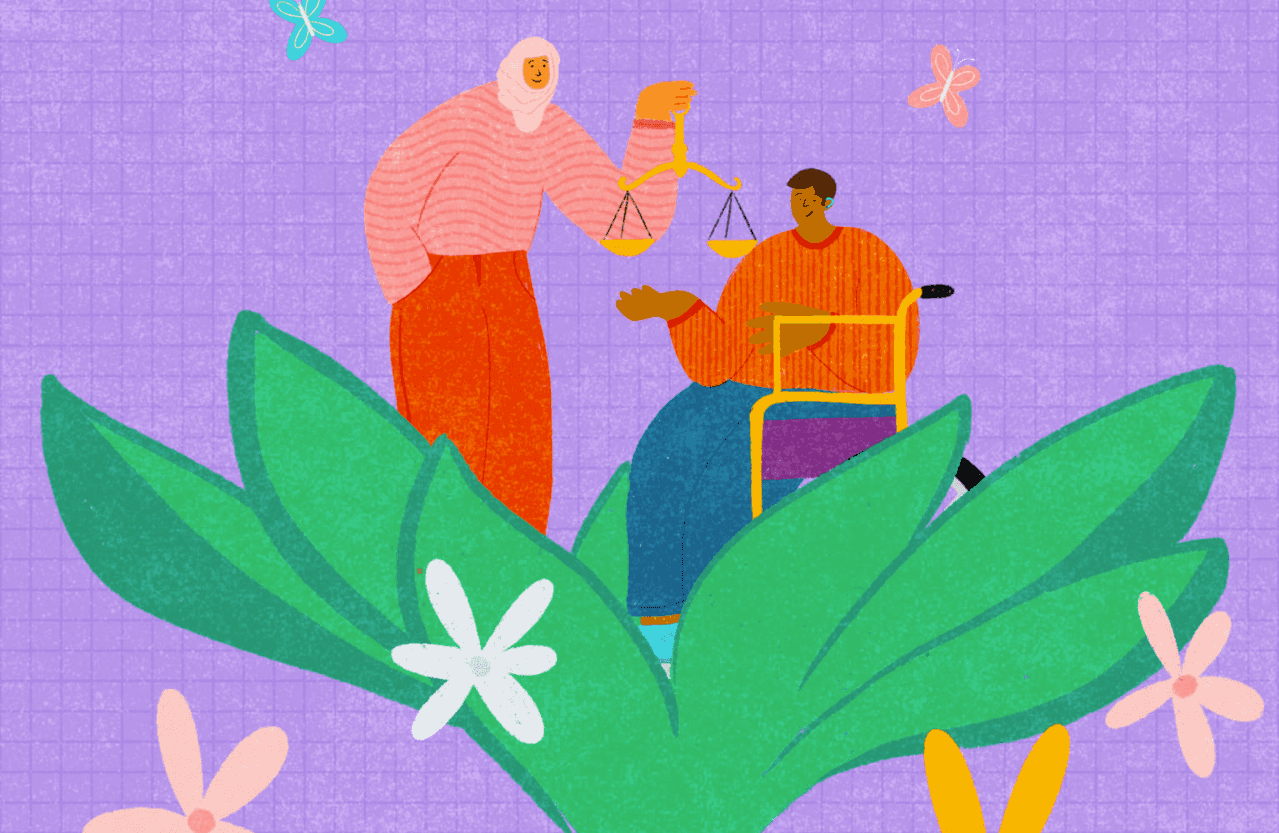“The climate crisis, often neglecting its colonial origins, disproportionately harms marginalized communities. Our series amplifies voices of Black, indigenous, and people of color activists in Europe, aiming to redirect the discourse towards climate justice and away from incomplete discussions and solutions.”Nani Jansen Reventlow, Founder of Systemic Justice
Reframing climate justice: A BIPOC-led speaker series
The climate crisis impacts marginalized communities, including Black, indigenous, and people of colour (BIPOC) in Europe now, not just in the future. Systemic Justice's speaker series sheds light on this, presenting BIPOC perspectives and community-led actions against racial, social, and economic injustices.
May 7, 2024

© Pexels / George Milton
About
Systemic Justice
Understanding the root causes.
When it comes to the climate crisis, one of the climate movement’s dominant narratives is that it will affect “future generations”. Yet, marginalised communities, including Black, indigenous, and people of colour (BIPOC) in Europe, are already being affected. Systemic Justice is creating an exciting speaker series that tells this alternative story from the perspectives of Black, indigenous, and people of colour in Europe who are actively resisting racial, social, and economic injustice. Over five instalments, they delve into the root causes of climate breakdown and explore the links between the crisis and other systemic harms to understand the unique impacts on BIPOC communities, the community-driven action being taken to address this emergency, and how the project as a climate movement can ensure no one is left behind in the pursuit of true intersectional climate justice.
What it is about.
The series delves into the transformative force of climate justice, tracing its roots back to Black liberation movements. It shines a spotlight on BIPOC communities in Europe at the forefront of combating climate breakdown. Episode one explores the contemporary relevance of these approaches in the ongoing fight for justice. Meanwhile, episode two unveils the colonial origins of the crisis, demonstrating how historical injustices continue to shape present-day environmental disparities. Lastly, episode three investigates Europe's spatial injustices, revealing how phenomena such as green colonialism and eco-gentrification perpetuate environmental inequality.
One click for data privacy
Only when you click the button the video be loaded from Youtube. Only your IP address will be transmitted to external Youtube servers. You can find out more about the data protection of this provider on the Youtube website.
Learn more:
Nani Jansen Reventlow on the importance of community-driven litigation
By carefully coordinating action on different fronts, including campaigning and generating public debate, litigation can be an important catalyst in pushing causes forward. But while the courts are powerful agents for change, marginalised communities are often unable to leverage the full potential of litigation on their own terms for their causes and campaigns.
There can be a difficult dynamic and power imbalance between the groups pushing for change and litigators doing the legal work, resulting in lawyers instead of the communities themselves driving the work and setting the objectives when it comes to court cases. Current climate litigation, which does not address the needs of the marginalised groups that are being hit the most by the climate crisis, is an example of this.

The foundations of community-driven litigation
At Systemic Justice, we believe that communities should be leading on the litigation campaigns that concern them, and that they should be able to access justice on their own terms. This is more than strategic litigation as we know it, or even “community-centred” litigation: we are building a model of community-driven litigation. What does that entail?
It begins with the starting point for exploring collaboration: instead of having lawyers identify legal strategies and then reverse engineering a partnership with communities the lawyers assume will want to pursue them, communities’ perspective, lived experience, and solutions drive the work. This goes hand in hand with the fundamental acknowledgement that structural change takes time. For this reason, we enter into long-term partnerships and develop joint strategies that tackle root causes rather than merely addressing the symptoms of systemic injustices.
The process: building on best practices and reimagining the bad ones
When exploring a partnership with a community-based organisation, we jointly discuss and consider the following questions:
1) What is the bigger change the community wants to see?;
2) Can strategic litigation provide a positive contribution to their campaign for change?;
3) If so, what would a litigation strategy look like?
If we make the mutual decision to move forward together, the next step is to jointly design a strategy for a litigation campaign that can complement their cause.
We are in the process of developing our litigation methodology, where we seek to draw on existing good practices in community and movement lawyering, and devise alternatives to the problematic patterns that exist in traditional lawyering models.
One set of good practices we’re learning from are the design justice principles. Applied to the context of strategic litigation, we have translated these principles into the following:
- We jointly design strategic litigation processes in a way that sustains, heals, and empowers communities, while seeking liberation from exploitative and oppressive systems.
- We centre those who are directly impacted by the outcomes of the strategic litigation, which by necessity means being led by those most impacted by the injustice being challenged in the litigation.
- We prioritise the impact litigation can have on communities over the intentions of Systemic Justice. This means that cases will not be designed based on what Systemic Justice would like or want to litigate on, but on the basis of communities’ objectives for the process and what they believe can bring about change.
- We co-design a process that is accountable, accessible, and collaborative throughout.
- We are facilitators in the process rather than experts. Expertise comes from lived experience, and everyone has unique and brilliant contributions to bring to a strategic litigation process.
- We work closely with communities in providing all the information, support, and guidance needed to develop a legal strategy on their own terms, and do the legal leg work to make that litigation strategy a reality.
- We share knowledge and tools with the communities we work with.
- We jointly design strategic litigation processes that are aimed at sustainable, community-led, and community-owned outcomes. This means that the outcomes of litigation feed back into communities’ campaigns for change, that the litigation is part of a longer-term and sustained movement, and that successes are owned collectively by the community rather than an individual lawyer, organisation, or claimant.
- We co-design strategic litigation processes that are aimed at non-exploitative solutions that reconnect us to the earth and to each other.
- We honour and uplift knowledge and practices that already exist at community level, and we build on what is already working for communities.
Beyond these principles, our litigation methodology includes our approach to outreach and trust-building, and our case development approach, which will be further developed and tested.
The text was originally published on the Systemic Justice Website in February 2023.